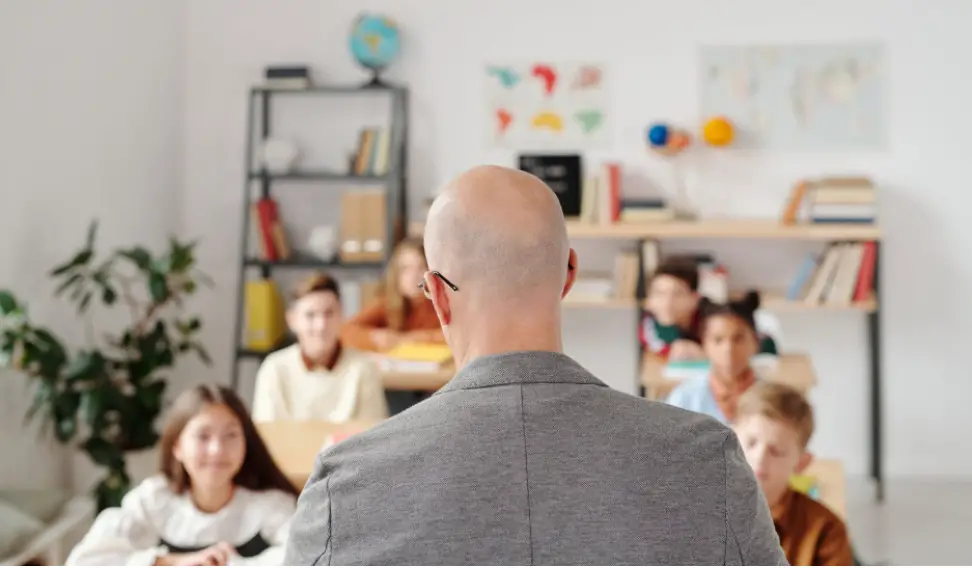Can Your School See Your Internet History At Home?
In a post-pandemic world, working from home is the norm. With schools and universities giving teachers access to school-provided devices and networks, privacy is a concern. You may be wondering whether your school can see your internet history at home.
Your school can watch your internet history at home when you use school-provided devices, accounts, and networks. Also, if you log in with your school account, your school can watch everything you do on the server. The depth, amount, and sensitivity of the collected data depend on you.
If you want to safeguard your privacy, you may need to separate between work and play. Also, don’t allow family members to use your school account. Keep reading to get the whole picture.
Yes, Your School Can See Your Browsing History
Your school may have access to your internet history at home through Google Chrome. Here’s how:
If your school provided you with a Google-connected account username and password, they might have access to your data on Google.
For example, your school might give you access to a .edu email that’s connected to Google Workspace.
You can connect your email account to Gmail and other Google services. Once you log in to Google Chrome and turn on syncing, your school gets access to everything Google can record.
If you log in with your school account on your phone and turn on syncing, your school will be watching. However, that’s one way your school can see your internet history at home. When you connect your personal device to your school’s network, they can see and log what you do.
If your school controls your email and has the password, they also have access to your location, YouTube history, blog, and more.
Maps
Google Maps can remember your location history. Furthermore, any place you check-in, review, or search will stay in your browsing history.
So, your school can see your location history but you first have to allow this feature on your devices.
YouTube History
YouTube also remembers your history. So, any video you watch will stay on your internet history. The searches you make, the comments, and the likes are all viewable in your account.
Emails
When you’re using Gmail, your school will get full access to your inbox including sent and received emails.
Contacts
Any contacts you save to the account will be available to your school. Events you add to the calendar are also viewable by your school.
Photos
When you upload photos, files, or documents to your Google Drive, your school can access them as well. Some mobiles will upload these photos automatically as a part of the syncing process.
Meetings
If you use Google Hangouts to conduct meetings, your school can view them.
What Your School Can’t See?
You get the idea. Your school can access everything on Google Chrome. So, the only way out is to have your separate account.
Use your school account for school-related work and only school-related work. But even without a Google account, your school can still see what you’re doing online. For example, if your school provides access to the internet through a school server, they can get a glimpse of what’s going on with your machine.
You might stay home but still have access to the school’s remote network. The IT team at the school will probably monitor the network for security reasons.
There’s no way to “cut the cord” except separating work and play. Use the school network for doing your job. And keep a separate internet connection for your other uses.
Ask Your School
In doubt, you can always communicate your worries with the responsible team in your school. Ask them about the extent of their surveillance policy and what are your responsibilities.
Maybe your school isn’t even interested in seeing your internet history. Perhaps, they have a strict policy. You can never know until you ask for the specifics.
Request That Your School Pay For Your Internet Connection
In some cases, your school will pay for a separate internet connection.
They may provide you with a paid connection, while they may not have complete control over this type of connection, but they’re still paying for it.
There is also the possibility that the school has some rules regarding the proper use of this internet connection. You can ask your school to set up a separate connection to do your job. It doesn’t end well when you use your home connection for work.
You can meet your school in a middle ground where they pay for the connection. Or at least, contribute towards the internet bills.
Make Use Of VPN
VPN is the best way to protect your privacy at home and work.
If you’re worried about your school seeing your internet history, you can subscribe to a VPN service. That way, your school can’t monitor you. Whether you’re using a school network or a home network, a VPN can hide your tracks.
You may want to avoid using a VPN on your school’s network to avoid getting flagged, however. But a VPN is better than nothing to protect your privacy.
How To Stop Your School From Seeing Your Internet History?
It’s not always an easy decision to make, but separating between work and play is a must to protect your privacy.
If you’re going to do your work from home, you must have an agreement to protect your privacy. Even when you’re using a school-provided laptop or internet connection, your privacy is still valuable. Don’t use these devices for any other purpose than doing your work.
When there’s no other choice, you should ask your school to lift the financial burden off your shoulder.
All in all, your school can see your internet history at home in the rare case of connecting you to Google. More commonly, your school might have privileges to view your internet history on school-provided devices.
To be safe, don’t use your school’s network for personal purposes.

